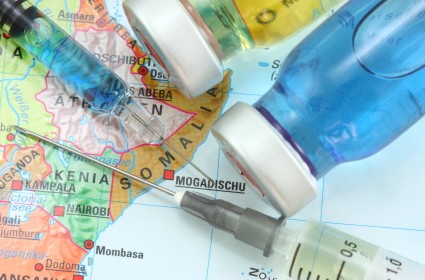One of the best things about setting off on an adventure overseas is the fact that it allows you to kiss goodbye to everyday concerns and focus on having fun. Having said that, there are certain practical issues that you simply can’t afford to ignore – and health is one of them. Given how simple it now is to globe hop, it’s all too easy to forget about the potential medical risks that await travellers in certain parts of the world. This brief guide covers some of the key diseases you have to watch out for when you jet off to far flung locations.
Ebola
Unless you have been hiding under a rock for several months, you will know all about the tragic outbreak of Ebola in West Africa. This deadly virus has taken hold in Guinea, Liberia and Sierra Leone, and shock waves are being felt around the world. Some of the luckiest patients have received treatment in first-class medical facilities that benefit from hi-tech clean air and containment equipment such as that provided by Contained Air Solutions. However, the majority of patients have had to make do with rudimentary healthcare or even no treatment at all.
The World Health Organisation has reported around 10,000 cases and more than 4,900 deaths, making this the largest known outbreak of the disease to date. Travel to areas at risk from the virus is not advised. For further details on this, you can visit the GOV.UK foreign travel advice website. This provides the latest guidance for all countries. Meanwhile, if you are in an at-risk area, you should make sure you wash your hands frequently with soap and water, wash and peel fruit and veg before eating it, avoid physical contact with individuals who show symptoms and avoid crowded areas where people may be affected. You should also avoid handling dead animals or raw meat and stay away from bushmeat.
Malaria
Although not such a topical subject right now, malaria is another disease to watch out for. Each year, around 1,750 people return to the UK with this serious and sometimes fatal condition. It is spread by female mosquitoes that carry the plasmodium parasite.
If the country you are travelling to is affected by malaria, see your GP before you set off. Your doctor will be able to provide you with the relevant tablets and advice. Also, do your best to avoid mosquito bites during your trip. Insect sprays and mosquito nets can help with this.
Travellers’ diarrhoea
A much more common illness is travellers’ diarrhoea (TD). In fact, this is the most prevalent illness experienced by people who make trips from Britain to developing countries. TD is a general term for infections of the stomach and intestines caused by a range of bacteria or parasites. Many of these cases are caused by salmonella. There is no vaccine to prevent TD, but good hygiene and eating habits help to lower the risk. The foods that are most likely to cause this type of sickness are those that have not be heated thoroughly or those that have been left at room temperature.
If you find you develop TD, make sure you drink plenty of clean, hydrating fluids. Generally, these bouts only last for a few days. However, more serious cases can last longer.
Dengue
If you’re heading to tropical or subtropical areas like the Caribbean, South America or Southeast Asia, dengue fever should be on your radar. This common virus is spread by infected Aedes mosquitoes. These insects typically bite during the day. Symptoms of the disease include a high temperature, headache, pain behind the eyes and aching bones, muscles and joints. In some cases, it also causes a rash.
Generally, the illness only lasts for a few days and serious complications are rare. There is no antiviral treatment for dengue so the best way to avoid it is to limit your exposure to mosquito bites.
These are just four of the diseases you have to watch out for when you travel. Others include hepatitis A and B, yellow fever, typhoid and rabies. Before you set off on your next foreign adventure, make sure you’re fully clued up when it comes to potential illnesses. If you’re not sure of anything, you can check respected sources online. You may also need to make an appointment with your doctor to get the necessary tablets or vaccinations.



